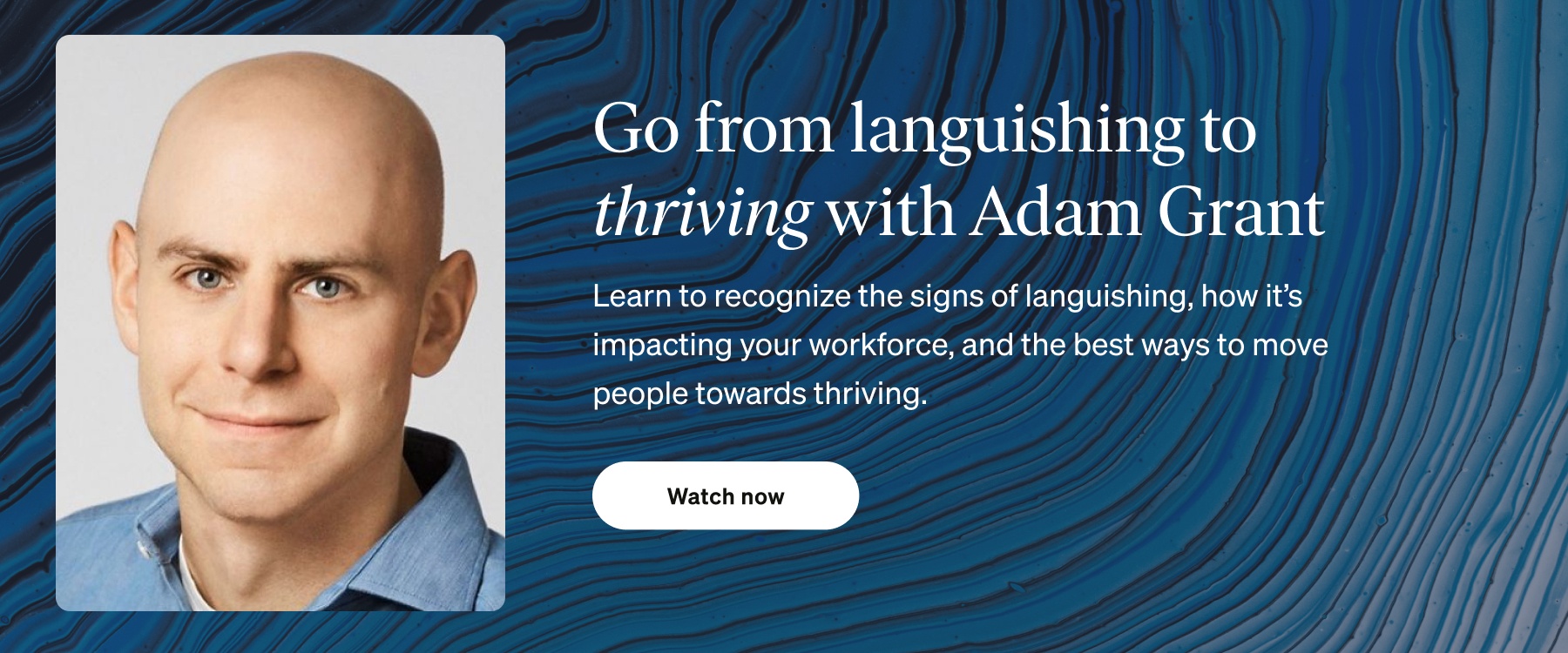-
For Business
For Business
Products
LeadBuild leaders that accelerate team performance and engagement.
Care™Drive productivity through sustained well-being and mental health for all employees with BetterUp Care™.
Solutions
Sales PerformanceTransform your business, starting with your sales leaders.
Diversity & InclusionFoster a culture of inclusion and belonging.
Customers
Case StudiesSee how innovative companies use BetterUp to build a thriving workforce.
- For Individuals
-
Resources
Resources
LibraryBest practices, research, and tools to fuel individual and business growth.
EventsView on-demand BetterUp events and learn about upcoming live discussions.
BlogThe latest insights and ideas for building a high-performing workplace.
ResearchInnovative research featured in peer-reviewed journals, press, and more.
- About
Gaps in empathy and self-compassion may explain workplace inequalities

It’s a common trope that shows up again and again in pop culture. Against all odds, an employee pulls themself up the corporate ladder rung by rung. But once at the top, we realize the journey has changed them and they’ve completely forgotten about the plight of the “little people” they met (and once were) along the way.
Like any great fiction, it’s based on a kernel of truth.
Across the country, waves of labor strikes over working conditions (Amazon, Kellogg, numerous health organizations) have turned the public consciousness on the all too common disconnect between workers, managers, and executives.
While strikes about workplace inequality have raged throughout history (the earliest recorded strike is thought to be 1152 BC in Egypt), it does raise the questions of how did we get here and what do we do now?
What the data say
We looked at data from 9800 BetterUp members whose roles could be broken up into individual contributors, managers, and managers of managers. The results suggest interesting, significant, and possibly telling differences in empathy and self compassion scores between each group. Most notably, individual contributors scored very differently than those in management.
On questions gauging their level of empathy, frontline managers and managers of managers scored significantly lower than individual contributors. The self-evaluation asked participants to rate the accuracy of statements including:
“I treat others with warmth and compassion”
“I support and encourage others when they are down”
“I show genuine empathy for others”
While there is a strong negativity bias in how we evaluate our own abilities, these attitudes — like the familiar plots we mentioned at the outset may be based in some truth. Even if they are not, our beliefs about ourselves and others shape our attitudes and behaviors. Our beliefs shape our reality.
Interestingly, managers score significantly higher for self compassion than do individual contributors.
This suggests that those in management may be more forgiving of themselves than they are with their employees. It’s a bias that affects all of us. To avoid cognitive dissonance — the mental discord that arises when we hold two conflicting beliefs or act in ways that are inconsistent with our values — we tend to quickly forgive or explain away these clashes of conscience. We don’t, however, extend that same courtesy to others. Author Stephen Covey, summarized it perfectly:
“We judge ourselves by our intentions and others by their behavior.”
More often than not, we judge what others do harshly, and are slow to give them the benefit of the doubt or the assumption that their intentions were noble. This can lead to overreacting, penalizing failures, micromanaging and can cause people to become risk averse, disengaged, or unmotivated. People managers in particular must work hard to identify and eliminate this tendency in order to prevent it from unfairly coloring their judgement.
When we combine the differences in empathy and self compassion between managers and the individual contributors who work under them, you can see how management policies and practices might evolve that are unduly punitive or restrictive on the non-managerial part of the workforce and more lenient or favorable to management. Within teams and groups that could work against a culture of belonging and inclusion that develops and draws out the potential of every employee.
What organizations can do
While the disconnect between those at the top and those at the bottom is not a challenge that will be solved overnight, the data suggests that there is significant opportunity for personal and professional growth when it comes to seeing and understanding the perspectives of others.
When we checked back in with these same members after a month of coaching, the gaps in self compassion and empathy between managers and individual contributors were much smaller.
Coaching helps managers build self-awareness around the various roles they play across multiple dimensions of their lives through the Whole Person™ model. The strategies learned improve emotional regulation, emotional intelligence, communication, and collaboration so they can lead with empathy and compassion.
When a manager receives professional coaching, not only do they benefit, but so do their teams. Their increased empathy and compassion for others sets an example the team can follow, helps everyone create and maintain an environment of psychological safety, and elevates the entire organization.
All of us must continually work to combat the negative cognitive biases that obscure our perception of others. The good news is that we can improve. Through coaching and other activities that strengthen our mental fitness, we can mitigate the impact of these internal biases. With time and effort, we can strengthen our empathy and compassion for others and ourselves — leading to a happier and healthier workplace.
Erin Eatough, PhD
Sr. Insights Manager





